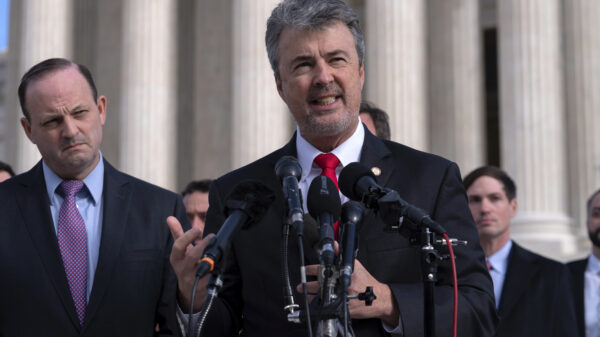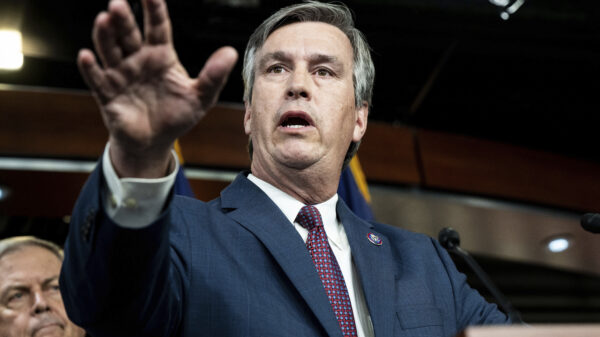Early polling in Alabama’s 2026 Republican U.S. Senate primary shows a shifting race, with former Navy SEAL Jared Hudson gaining momentum against Attorney General Steve Marshall.
In late August, The Alabama Poll surveyed roughly 600 likely Republican primary voters and found Marshall leading with 37 percent support. U.S. Rep. Barry Moore, R-Enterprise, followed with 16 percent, while Hudson trailed at 7 percent.
Nearly 40 percent of respondents were undecided, signaling that the race was far from settled. The poll had a margin of error of about four points.
But by mid-October, a new Quantus Insights poll of more than 1,000 registered Republican voters showed Hudson surging into first place with 27 percent support, narrowly ahead of Marshall at 24 percent.
Moore’s backing in this poll showed just 9 percent, and 36 percent of voters remained undecided. With a smaller margin of error of about three points, the Quantus poll suggests that Hudson’s message may be resonating with primary voters and that Marshall’s early advantage has tightened considerably.
The Alabama Poll’s sample represents a smaller, more engaged slice of the GOP electorate, while Quantus surveyed a broader base of registered Republicans. The gap in sample size and timing, about six weeks apart, also means voter opinions may have shifted as candidates increased visibility.
Marshall’s initial lead underscored his statewide name recognition and status as a sitting attorney general, but Hudson’s rise indicates that voters are taking a closer look at alternatives in the open race.
His background as a Navy SEAL and political outsider resonates with some Republican voters, especially those seeking a candidate with a fresh perspective. Meanwhile, Moore’s decline suggests that other candidates are consolidating the conservative vote.
Despite the movement in the standings, both polls show a large block of undecided voters. With more than one-third of respondents still uncommitted, the 2026 GOP Senate race remains wide open and volatile.
Political strategists caution that polls this far out from election day are only snapshots, not forecasts. Still, the numbers show the trend that what began as a race dominated by Marshall has become a more of a contest between two leading figures representing different styles of Republican leadership.
If Hudson continues to build on his momentum and Marshall leverages his institutional support, the coming months will determine which vision resonates most with the Republican electorate.
For now, the state’s 2026 GOP Senate primary appears poised to become one of Alabama’s most closely watched political battles.

















































